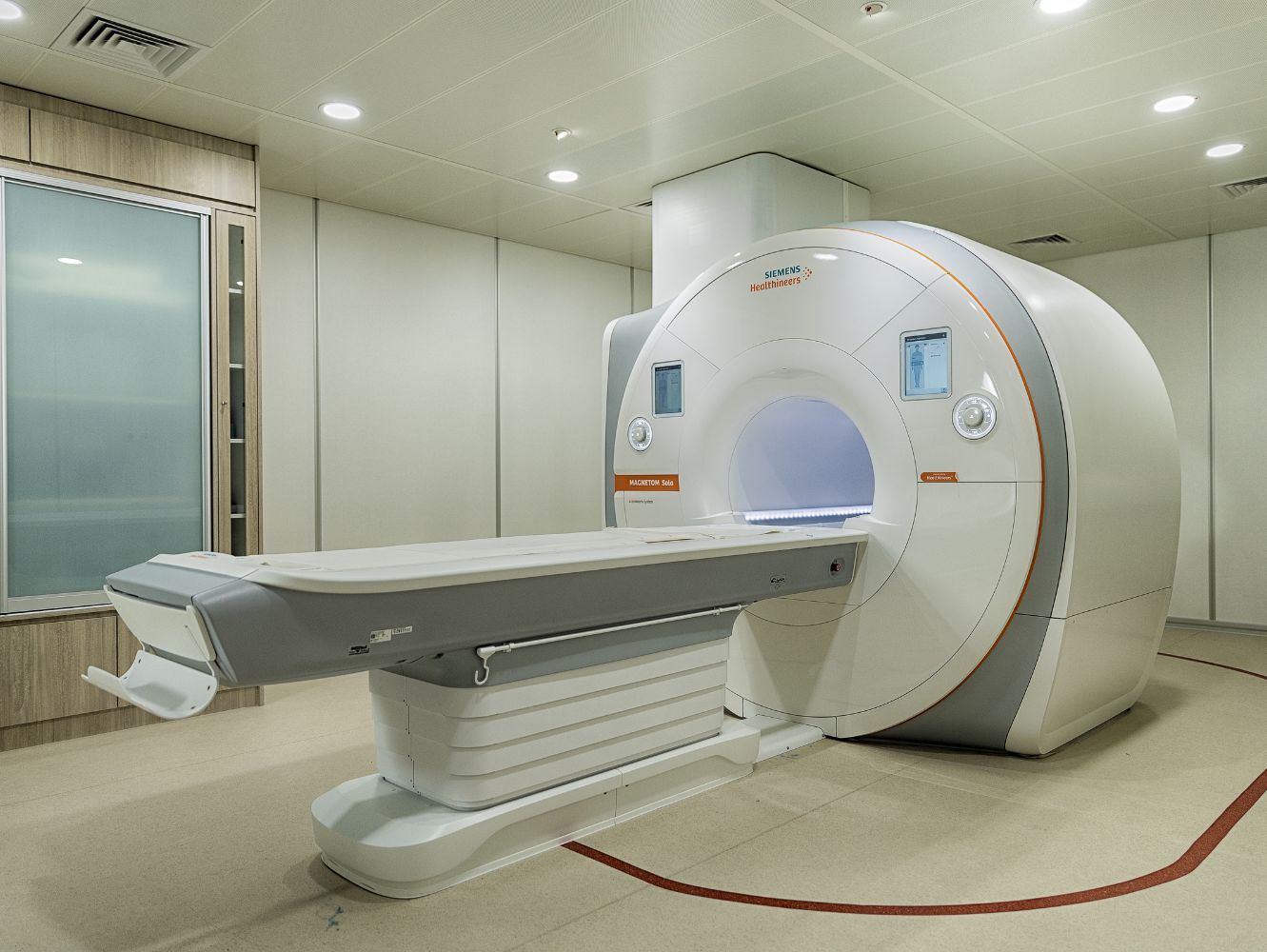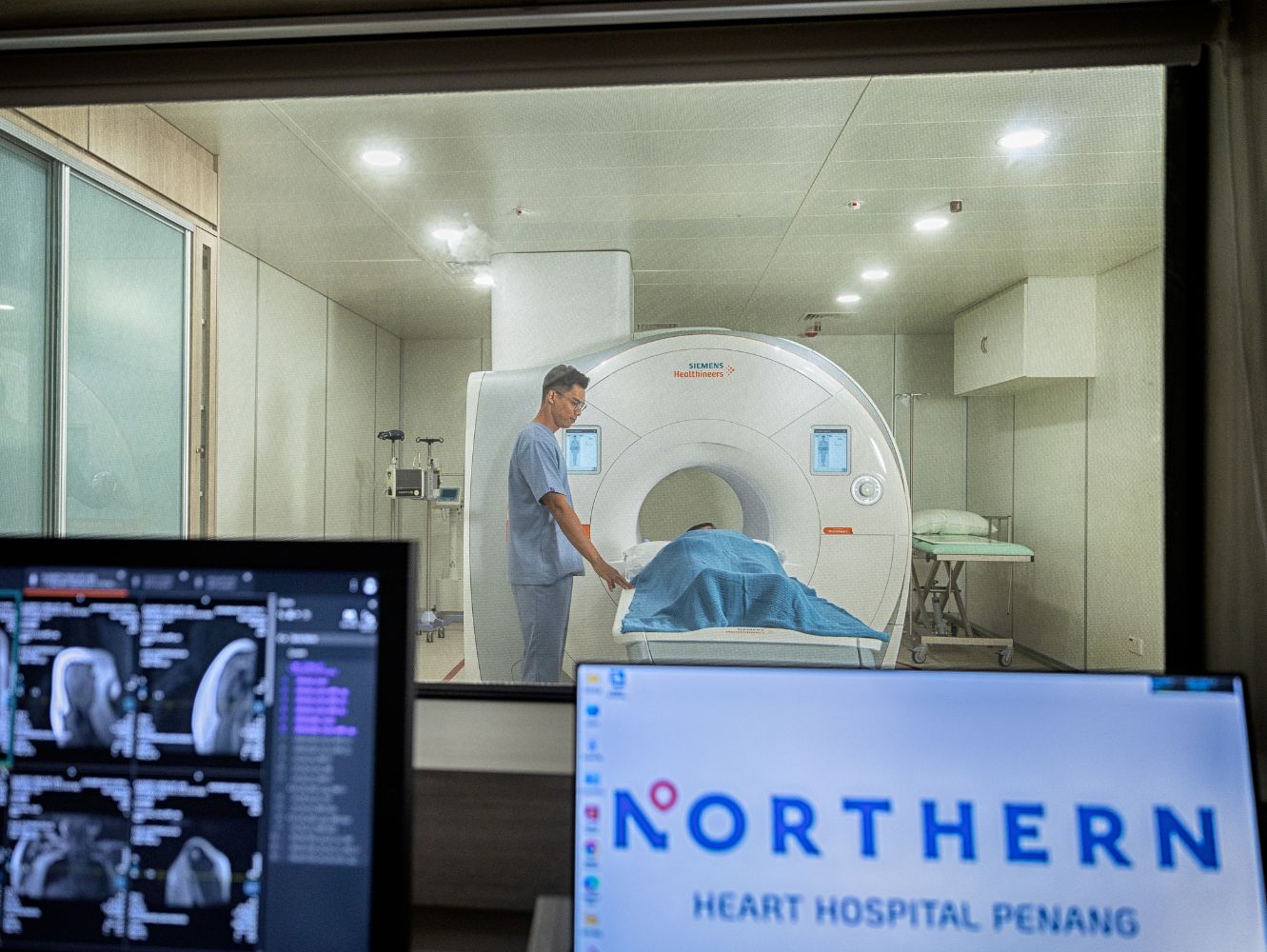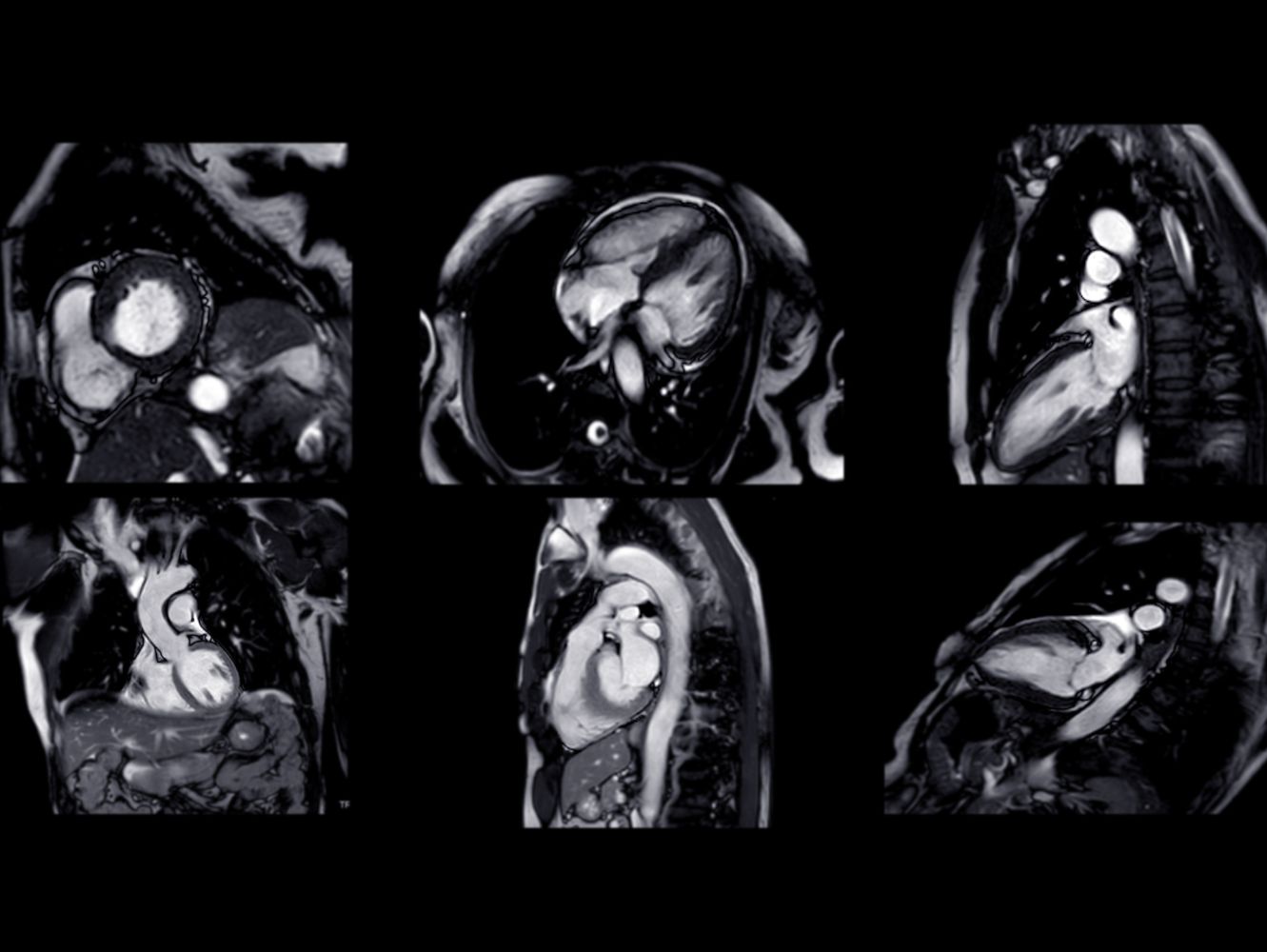
Let’s take a closer look at Cardiac MRI scans – an advanced, non-invasive imaging technique that is transforming how we diagnose and treat heart conditions. At Northern Heart Hospital Penang, we are proud to offer state-of-the-art cardiac imaging services, ensuring that our patients receive accurate diagnoses and the best care possible, when it matters the most. Whether you are a patient, a loved one, or someone interested in staying heart-healthy, this guide is for you!
What is a Cardiac MRI?

A Cardiac MRI (Magnetic Resonance Imaging) scan provides highly detailed images of the heart and surrounding blood vessels. Unlike traditional imaging techniques such as X-rays or CT scans, an MRI uses powerful magnetic fields and radio waves to create clear, high-resolution images of soft tissues. This allows healthcare professionals to examine the heart’s structure and function in unprecedented detail, without exposing patients to dangerous radiation.
This technology offers a unique view into the heart’s condition, including its muscles, valves, contractions and blood flow, providing crucial information that can guide the diagnosis and treatment of various cardiac conditions. This makes MRI particularly valuable for heart conditions, where detailed imaging is essential for early diagnosis and monitoring.
Why Choose a Cardiac MRI?
At Northern Heart Hospital Penang, we recommend Cardiac MRI scans for several reasons:
- Detailed Imaging: Cardiac MRI produces exceptionally clear images of the heart and blood vessels, making it one of the most precise imaging methods available. It can detect the smallest changes in the structure and function of the heart, which may be missed by other imaging techniques.
- Non-Invasive: The procedure is entirely non-invasive, requiring no incisions or instruments to be inserted into the body. It is also painless, making it a preferred choice for patients who may be anxious about undergoing more invasive medical procedures.
- Early Diagnosis: One of the most significant advantages of a Cardiac MRI is its ability to detect heart disease early. Early detection of conditions such as cardiomyopathy, congenital heart disease, or coronary artery disease can significantly improve treatment outcomes.
- No Radiation Exposure: Cardiac MRI does not use ionising radiation, unlike X-rays or CT scans. This makes it a safer option, particularly for patients who need frequent imaging or long-term monitoring. It is also a safer choice for children or young adults.
By choosing Northern Heart Hospital for your cardiac imaging, you are placing your heart health in the hands of skilled professionals with access to cutting-edge technology that ensures both accuracy and patient safety.
Who Should Consider a Cardiac MRI?
A Cardiac MRI is suitable for anyone with known or suspected heart issues. It is especially recommended for patients experiencing chest pain, shortness of breath, or irregular heartbeats, as these symptoms may indicate underlying heart problems that need further investigation. Patients who have had a heart attack, or those with a family history of heart disease, may also benefit from this type of imaging.
Moreover, a Cardiac MRI is an excellent tool for monitoring congenital heart defects. These are heart conditions that are present from birth and can affect how the heart develops or functions. Regular MRI scans can help track the progression of these conditions and assist doctors in making informed decisions about treatment and detection of some inherited or genetically related heart conditions.
Cardiac MRI is also ideal for evaluating the effectiveness of treatments or surgeries. For example, if you have undergone heart surgery or are being treated, MRI scans can help your doctor assess the success of the intervention and make necessary adjustments to your treatment plan.
What Can a Cardiac MRI Detect?

A Cardiac MRI offers comprehensive insights into a wide range of heart conditions. Some of the key areas it can detect and evaluate include:
- Cardiomyopathy: This is a group of diseases that affect the heart muscle, making it harder for the heart to pump blood to the rest of the body. An MRI can identify changes in the heart’s muscle tissue, such as scars thickening or thinning, which are hallmarks of various types of cardiomyopathy.
- Congenital heart defects: MRI is invaluable for diagnosing and monitoring heart defects present from birth, such as holes in the heart or malformed heart valves. It provides detailed images that allow for accurate surgical planning or ongoing monitoring without invasive procedures.
- Heart valve issues: Heart valves control the flow of blood through the heart. An MRI can show how well these valves are functioning and detect any abnormalities, which can cause significant strain on the heart.
- Heart tumours and inflammation: Although rare, tumours can form in or around the heart. MRI is the most effective imaging technique for detecting these tumours and assessing their impact on heart function. It can also detect inflammation of the heart muscle, which is often caused by infections or autoimmune diseases.
How to Prepare for a Cardiac MRI?
Preparing for a Cardiac MRI is simple and stress-free. In most cases, there is no need for special preparation, but here are a few guidelines to follow:
- Medications: Continue taking any prescribed medications unless your doctor advises otherwise. Some medications, such as beta-blockers, may be adjusted before the scan to optimise the imaging quality.
- Fasting: You may be asked to fast for a few hours before the procedure, especially if a contrast dye is used. The contrast dye, which enhances the visibility of certain heart structures, is generally safe but requires a brief period of fasting.
- Metal objects: Because MRI machines use magnetic fields, you must remove all metal objects, such as jewellery, watches, and glasses, before the scan. Our staff at the Northern Heart Hospital will inform you regarding metal implants, pacemakers, or other medical devices in your body.
What Happens During a Cardiac MRI?
The Cardiac MRI procedure itself is straightforward and typically lasts between 30 to 60 minutes, depending on the complexity of the scan. You will be asked to lie on a comfortable table that slides into the MRI machine, which is a large, tube-like structure. Although the machine makes some loud tapping or thumping sounds during the scan, do not be alarmed, you can request for earplugs or headphones to make the experience more comfortable.
In some cases, a contrast agent may be injected into your bloodstream to enhance the clarity of the images. This is particularly useful for highlighting blood vessels or detecting areas of damage following a heart attack. The contrast dye is safe for most patients, and our team will monitor you closely throughout the procedure.
While inside the machine, you will need to stay as still as possible to ensure clear images. The technician may ask you to hold your breath for short periods to capture high-quality pictures of your heart in motion. Our team will be in constant communication with you through an intercom system, ensuring that you feel comfortable and informed throughout the scan.
What to Expect After the Scan?
Once the scan is complete, you can resume your normal activities immediately, with no downtime required. If contrast dye was used, it will naturally pass through your system within a few hours, and you are encouraged to drink plenty of water to help flush it out. Your doctor will review the images, and a follow-up appointment will be scheduled to discuss the results and any next steps for your care.
At Northern Heart Hospital Penang, we understand that waiting for results can be stressful, which is why we prioritise quick turnaround times. Our team of experienced cardiologists and radiologists will work swiftly to provide you with a comprehensive analysis of your scan.
Conclusion
Taking care of your heart is one of the most important steps you can take toward long-term health and wellbeing. A Cardiac MRI scan is a powerful tool that provides detailed insights into your heart’s condition, helping your healthcare team make informed decisions about your care. At Northern Heart Hospital, we are committed to offering the latest in cardiac imaging technology, coupled with compassionate, patient-centred care. Whether you are experiencing symptoms or just want peace of mind about your heart health, a Cardiac MRI could provide the answers you need.
For more information or to book your Cardiac MRI scan, contact Northern Heart Hospital Penang today. Together, let’s take proactive steps towards safeguarding your heart health and ensuring a healthier tomorrow!
